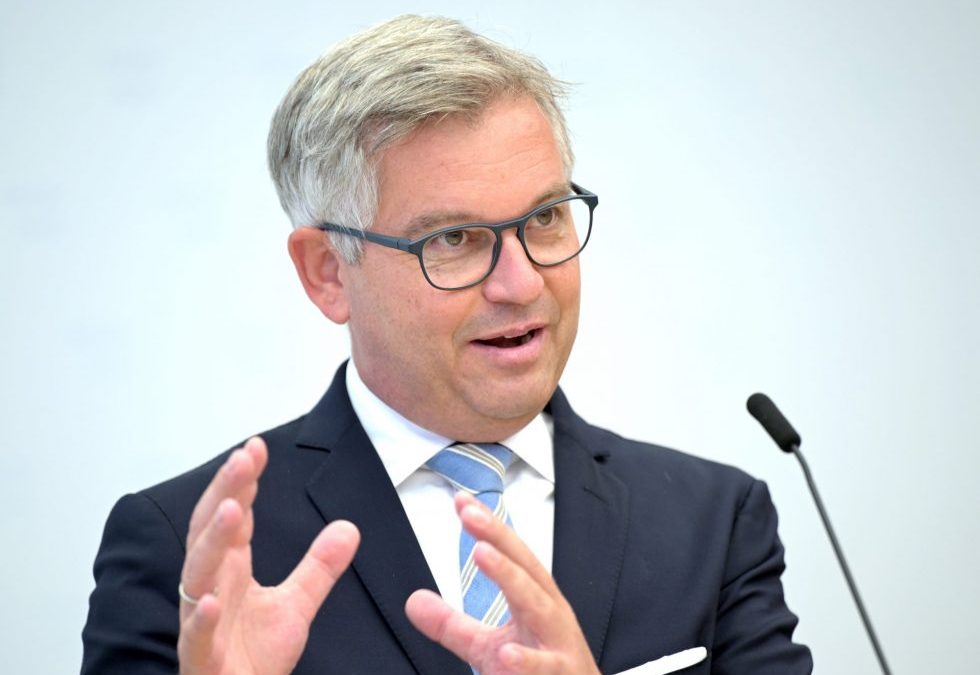Bogota (APA) – Latin America is “an important partner” for the European Union in the areas of crime fighting and migration. This was emphasized by Austrian EU Commissioner Magnus Brunner on Sunday in an APA interview during the EU-CELAC summit in Colombia. Brunner met several Colombian ministers at the summit and also led the third drug dialogue between the EU and Colombia. In the port of Santa Marta, he observed concrete activities in crime fighting. “Colombia is very committed and active.”
The cooperation with Latin American countries is very effective, said Brunner. “I believe that Colombia is doing everything it can to fight (against drug trafficking). It is true that the quantities have increased, but so have the seizures.” For the EU, it is about providing operational support to Colombia – specifically through the assistance of Europol and in building structures. Brunner also emphasizes the European Port Alliance, which the EU Commission established last year and from which Latin America wants to learn. Through better cooperation between private and public entities, processes in logistics and security are to be improved.
Brunner also for cooperation with the USA
When asked about the actions of the USA in the Caribbean, Brunner said: “I believe that one must cooperate with the states to support that certain developments go in the right direction through democratic means, and that is why cooperation is enormously important. It is not an option to say: We are now withdrawing.” He also noted in his bilateral talks with Colombians that cooperation, especially with the USA, is extremely important to them – and with Europe. “That we are both important partners for them in the fight against drug trafficking.”
Another reason for the trip to the CELAC summit is the issue of migration for the Commissioner. Since visa-free travel in the EU is repeatedly abused, the EU Commission plans to present a new visa strategy at the beginning of 2026. Therefore, migration and visa policy play a significant role on the sidelines of the summit. “We will need legal migration in the coming years for the labor markets. But it is about us deciding who comes to Europe – and not human traffickers and smugglers.” The new EU Entry-Exit System is already a good tool to know who enters and leaves Europe, with or without visas.
Drug problem is also growing for the EU
US President Donald Trump is currently focusing on the Colombian neighboring country Venezuela in the fight against drugs, relying on the use of military means. Critics accuse him of having regime change in Venezuela in mind. However, the increased drug consumption has also become a problem for the European Union in recent years.
In 2023, Spain seized 9.5 tons of cocaine in a single shipment. It was hidden in a banana shipment from Ecuador. According to the EU Drug Report 2024, criminal organizations are increasingly using legal commercial infrastructures involved in global trade: “There are documented cases where supply chains have been infiltrated and employees in key positions have been instrumentalized through intimidation and corruption.” Almost 70 percent of the drugs seized by customs authorities are confiscated in European ports. In the Belgian port of Antwerp-Bruges, around 121 tons of cocaine were seized in 2023 – another record.
In December, the Commission will present its new drug strategy. A difference from the previous approach, according to Brunner, will be that they want to exchange more with international partners. In addition to Colombia, they already have Europol agreements with Brazil and Ecuador, and are working on one with Peru, Bolivia, and Mexico. (09.11.2025)
 go to the original language article
go to the original language article
